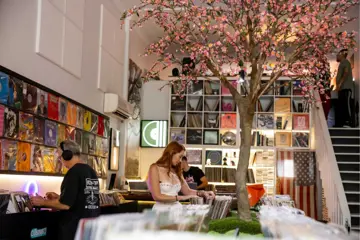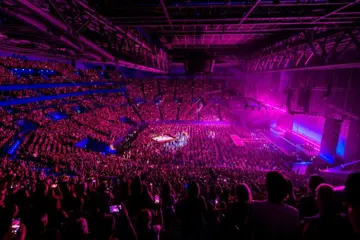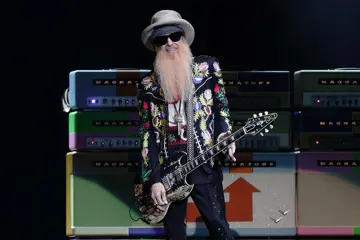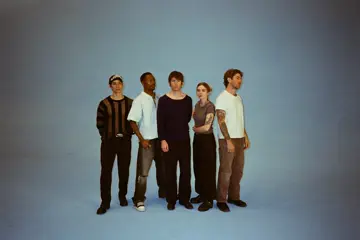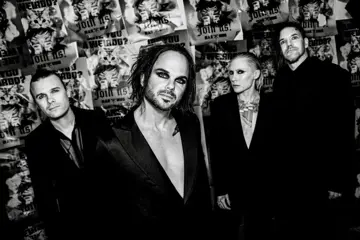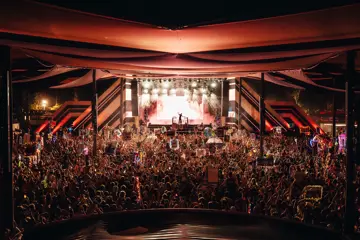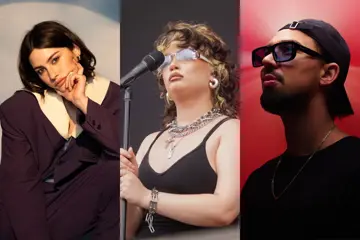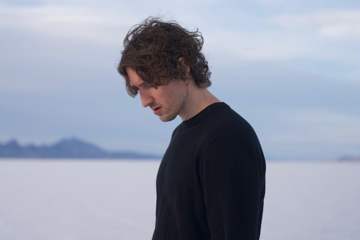Their production partnership began with 1997's El Corazón, though Steve Earle first worked with Ray Kennedy on the previous year's album, I Feel Alright, which had been coproduced by Kennedy and Richard Bennett, and together, calling themselves the Twangtrust, they've produced everything Earle has recorded since, apart from 2007's Washington Square Serenade, produced by John King, one-half of the LA-based Dust Brothers, and 2011's I'll Never Get Out Of This World Alive, produced by T-Bone Burnett. But they got back together for Earle's latest album, The Low Highway.
“Ray mixed [Earle's 2009 tribute album to mentor Townes Van Zant] Townes,” Earle, who relocated to Greenwich Village from Nashville in 2007, points out. “He didn't record it because I did it [at my home] in New York, but he did mix it and mastered it – and we've also done some other production projects together – the Joan Baez record [2008's Day After Tomorrow] he recorded and mixed that I produced. So we never stopped working together. I decided to go back to working with Ray in Nashville on this one – it's what made the most sense for the way this was recorded, with the band in five days.
“We fight like cats and dog when we're working together like a fucking married couple, but I like the way he records and he knows how to record me and it's a pretty effortless situation. I'm talking to Marianne Faithfull about her record and Ray's gonna record it 'cause it's the easiest thing to do – I can concentrate on songs and the artist, and I know what I'm gonna give her. I'm mixing a record with Ray right now; he's in Nashville mixing and sending me mixes over the Internet, and I trust him with them – I did the Baez record that way, and I'm making a record of David Broza, who's an Israeli singer, that we recorded in East Jerusalem with a half Israeli half Palestinian band, and we're mixing that right now [laughs], but Ray's done the wrestling with qanuns [Arabic violin] and ouds and stuff – all kinds of weird instruments!”
Joining Earle on The Low Highway are his live band, The Dukes, featuring guitarist Chris Masterson, violinist Eleanor Whitmore, double bassist Kelley Looney, drummer Will Rigby and singer and guitarist Allison Moorer.
Don't miss a beat with our FREE daily newsletter
“The original idea behind this record was a musical idea,” Earle explains. “Okay, this band's really good – I've got the best band I've had ever, so I wanted to record it, and I already had the three Tremé songs [written for David Simon's award-winning HBO TV series in which Earle plays a street musician named Harley]. They sort of headed me in a direction because the story of New Orleans after Katrina is linked directly to the economic times that we're living in, and the rest of the songs were written as I was out touring with the band finishing up the dates in North America over last [northern] summer, and I'm lookin' out the winda and writin' songs and suddenly the epiphany was that I was seeing something way closer to the America Woody Guthrie saw than any singer-songwriter of the last couple of generations. We all do a job that was invented by Bob Dylan as he was sort of inventing himself in the image of Woody Guthrie, which means that we've always done it with this link, spiritually and stylistically as far as music goes, back to the '30s and the Depression that runs through the singer-songwriter thing, and the ironic thing is none of us that do this job, including Bob Dylan, ever witnessed that first hand. And it suddenly dawned on me that what I was looking at travelling around in this day and age is very near what Woody saw. Times are very, very hard out there.”
The album was recorded in ProTools, which Earle feels is good enough now, “it sounds pretty fucking good – it's hard to tell the difference. The T-Bone record was recorded in ProTools using tape as an effect. It goes through tape and they've used the same piece of tape through the whole project over and over again. There's no tape being manufactured that's really dependable as far as I'm concerned for recording.”
That said, they still ran things through an analogue console in the boutique studio Kennedy set up after Earle departed for New York and Kennedy felt their Nashville studio, Room And Board, was too big.
“Ray has a new version of Room And Board, which is a mixing room, and he does have a tracking area, but I haven't recorded there. We recorded the tracks, which were basically the whole record – we only did about two overdubs, which were a couple of background vocals, and the mixing was done at Room And Board. The rest of it was recorded at Ben's Place, which is Ben Folds' studio, which is the old RCA [Victor Nashville Sound Studios] A, which is this great big, cavernous, old-fashioned recording studio, which is kinda what Ray and I like. Ray's new place is not really smaller, and he does track records there, but there's a great API console at Ben's Place. ”

